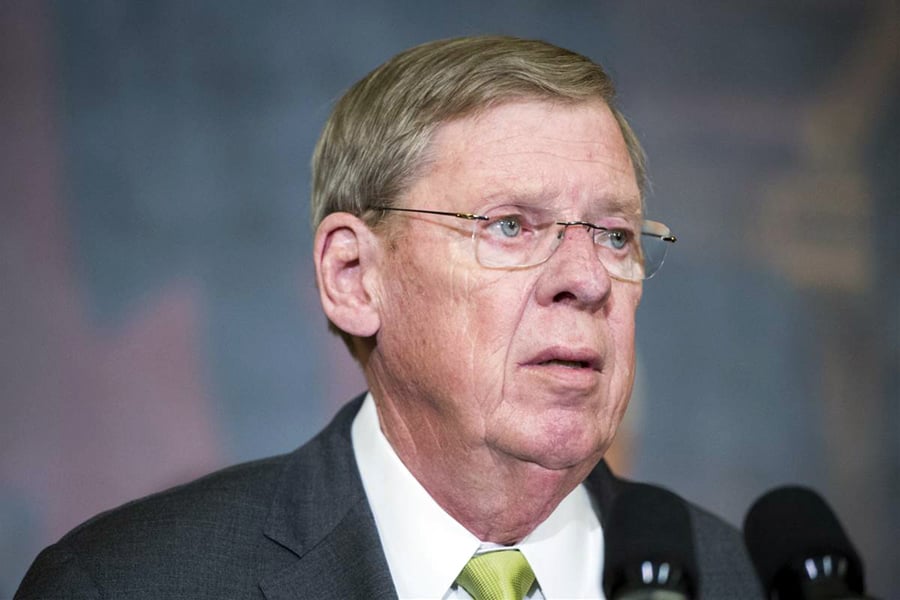One of the leading Senate critics of a new Labor Department investment-advice rule anticipates that the chamber will act to kill the regulation.
Sen. Johnny Isakson, R-Ga., said the Senate likely will vote on a resolution of disapproval. He also said that he plans to advance a separate bill he's sponsored that would halt the rule, which would require financial advisers to act in the best interests of their clients in retirement accounts.
Under the Congressional Review Act, lawmakers can stop regulations within 60 legislative days of a final rule being released. The DOL regulation
came out on April 6.
The House approved a resolution in late April on a party-line vote,
falling far short of the two-thirds majority required for it to overcome a certain veto by President Barack Obama, a strong proponent of the DOL regulation.
Mr. Isakson forecasts that the Senate will vote and perhaps send the resolution back to the House to try to increase the support there. It's not clear when it might be put on the Senate calendar.
“We've got to stand up for what's right and we've got to exercise the options we have, and that's one of them,” Mr. Isakson said on the sidelines of the BakerHostetler Legislative Seminar in Washington.
(More: Coverage of the DOL rule from every angle)
Mr. Isakson also plans to hold a hearing in the Senate Health Education Labor and Pensions subcommittee that he chairs regarding
legislation he's sponsored to stop the DOL rule and replace it with a fiduciary standard written by lawmakers.
“That's another tactic to try and wave the flag and fight the best way you can given the process, and I'm sure that [bill] will move forward,” Mr. Isakson said.
A Democrat who was one of the original sponsors of similar legislation in the House has now abandoned it.
Rep. Richard Neal, D-Mass., was one of dozens of Democrats who expressed concerns about the proposed DOL rule. But the
changes the agency made in the final rule have assuaged him.
“I thought they came up with a rule that was workable,” Mr. Neal said in an interview at the BakerHostetler event. “I pretty much accomplished the goals I set out to, so for me, [the bill] is unnecessary now. Much of the criticism of the draft [rule] has been diminished or eliminated in the final.”
Proponents of the DOL rule say that it will curb incentives for financial advisers to put clients in inappropriate high-fee investment products that erode their savings. Opponents say the rule is too complex and costly and will make giving and receiving advice significantly more expensive.
Congressional criticism of the rule helped convince DOL to modify it, Mr. Iskason said.
“It's still not a rule that I like but it's greatly improved over the direction they were going originally,” Mr. Isakson said.







